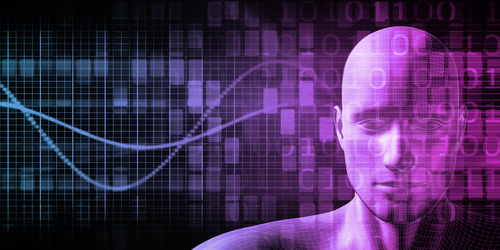



Get new exclusive access to healthcare business reports & breaking news




Chinese tech giant, Tencent Holdings has partnered United Kingdom-based Medopad to build an artificial intelligence (AI) system that can remotely monitor patients with Parkinson’s disease and reduce the time it takes to conduct a motor function assessment from over 30 minutes to less than three minutes.
The AI system the two companies are working on will monitor patients through smartphone apps, which monitor how a patient opens and closes their hands. The smartphone’s camera will capture a patient’s movement in order to determine the severity of their symptoms. The software then uses frequency and amplitude to determine a score for the patient, which determines the severity of their Parkinson’s.
This smartphone system, developed by Medopad, should allow doctors to remotely monitor patients and set new drug doses.
In the event that changes are needed to a patient’s treatment regime, the AI system will raise an alert, and notify doctors. If need be, the smartphone app will will also notify patients if there is need to visit a physician for check ups.
“We can raise an alert. It all happens through your phone, no matter where you are. You get flagged and your doctors say you should come in,” Medopad chief executive officer, Dan Vahdat said.
With this technology, the two firms hope to reduce the costs of travelling and clinic scheduling.
To develop the AI, a team of researchers worked with King’s College Hospital in London to train the system with videos of patients who had been assessed by doctors.
“We use the AI to measure the deterioration of Parkinson’s disease patients without the patient wearing any sensors or devices,” Wei Fan, head of the Tencent Medical AI lab, said.
Fan said their partnership with Medopad was “to help expand the remit of AI-powered movement assessment from sport and exercise to medicine and to reduce the cost of motor function assessment.”
For now, the system will only be used to interpret the video images from a smartphone into a graph that will be used by doctors to assess patients, but in the long run, the two firms hope the AI software will be taught to rate patients automatically.
Vahdat said the two companies shared a vision “to change the future of healthcare as we know it. In combining Medopad’s medical expertise and Tencent’s technical capabilities, we hope to provide the technology needed to support clinicians to predict preventable complications for people with Parkinson’s disease. Working together we can achieve our vision to help more than 1 billion patients live longer and continue doing great work.”
The London-based Medopad has in the past developed mobile apps for monitoring patients with diabetes, cancer, heart disease, and rare diseases.
In the future, Tencent and Medopad hope that the AI system can be used to treat other conditions like childhood brain cancers, “where the movement of children can be monitored to ensure that medications aren’t interfering with mobility or that the disease is not worsening mobility.”
There is increasing research interest into how technology can be used in treating Parkinson’s. It is reported that, presently, there is no mechanism that enables physicians to continuously and objectively track the effectiveness of prescribed medication, or the patient’s adherence to the prescription and this is an opportunity that medtech firms are keen to exploit.
The BBC reports that two researchers at Switzerland’s Institute for Robotics are working on a smartphone app that will ask patients to carry out various exercises and then analyze the results using machine learning, with advances in AI techniques promising to make it easier for doctors to prescribe treatment to alleviate the symptoms.
While the Tencent and Medopad AI system emphasizes that patients will not use wearables, a United-Kingdom startup Emteq and Germany’s audEERING are working together on “technology-imbued spectacles designed to track the severity of Parkinson’s symptoms.” The technology will use facial tracking and vocal analysis to track “key physical indicators” of Parkinson’s disease.
The two firms hope to take the smart glasses they are working on to a clinical trial in the second half of next year, before they are rolled out to patients in in 2020.
It is estimated that up to 10 million people globally are living with Parkinson’s, a chronic and disabling neurodegenerative disorder where prevalence increases with age. With an increasingly ageing worldwide population, research into Parkinson’s disease has become more imperative.
Interested in learning more about the best startups in pharma and healthtech? Check our guide to 31 best startups in 2018.